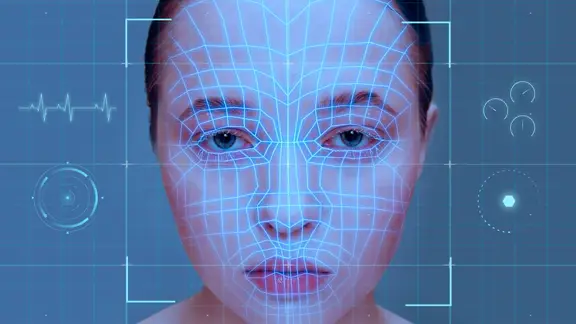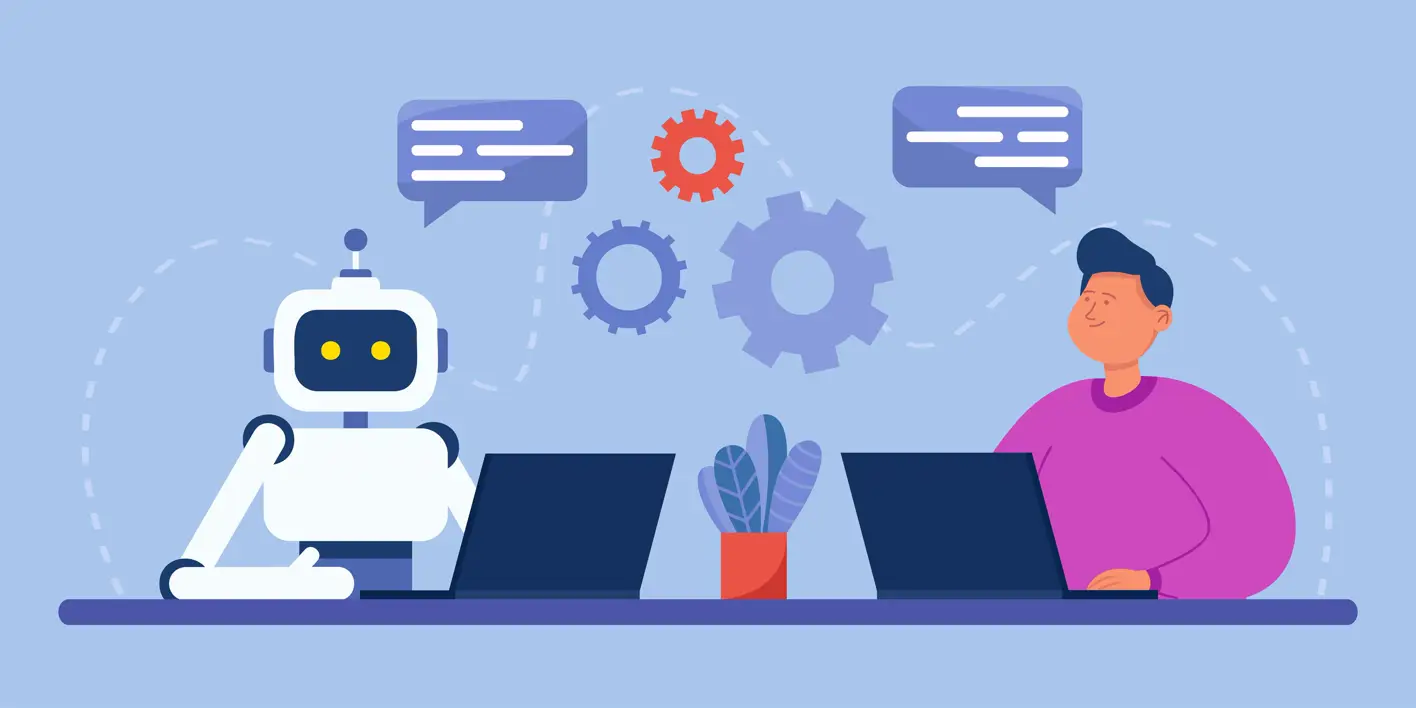How to Prepare for an AI Interview
AI interviews are a new type of interview that have become popular in recent years. They are often used by fast-moving consumer goods (FMCG) companies and banks for the first round of screening. Aniday has prepared some tips for you to cope with AI interviews, so you don’t have to fear the “virtual” interviewer.
What is an AI Interview?

An AI interview is similar to a regular human interview, where you answer questions posed by an AI interviewer. However, during the interview process, all the videos will be recorded, and not only your answers, but also your micro-expressions, personality, and emotions will be analyzed by big data. AI interviews mostly focus on behavioral tests, which can help the company better understand whether the candidate’s personality and other aspects match the company’s needs. Being well-prepared can help you greatly improve your chances of passing.
How to Prepare for an AI Interview
1. Understand the AI Interview Process
Before you start your AI interview, you should familiarize yourself with how it works and what to expect. Depending on the company and the position, you may encounter different types of AI interviews, such as:
-
Video interviews: You may be asked to record a video of yourself answering a set of questions or completing a task. The video will be analyzed by an AI system that will evaluate your responses, facial expressions, voice tone, and body language.
-
Chatbot interviews: You may be asked to chat with an AI chatbot that will ask you questions and provide feedback. The chatbot will analyze your answers, communication skills, personality, and emotions.
2. Research the Company
One of the best ways to prepare for any interview is to research the company and its products or services. This is especially important for an AI interview, as you may be asked to demonstrate your knowledge of how the company uses AI in its business. For example, you may be asked to explain how AI can improve customer service, optimize operations, or enhance innovation.
3. Prepare Your Environment
Another important factor to consider for an AI interview is your environment. You should make sure that you have a quiet and well-lit space for the interview. You should also ensure that your internet connection is stable and fast to avoid any technical issues or interruptions.
4. Practice Speaking Clearly
Since AI will be analyzing your responses during the interview, it’s important to speak clearly and articulate your thoughts well. You should avoid using filler words, slang, or jargon that may confuse the AI system or lower your score. You should also use proper grammar, punctuation, and spelling when typing or writing your answers.
5. Review Common Interview Questions
While each AI interview may be different depending on the company and the position, there are some common questions that you can prepare for in advance. These questions may cover topics such as:
-
Your background: You may be asked to introduce yourself, describe your education, work experience, skills, achievements, or hobbies.
-
Your motivation: You may be asked to explain why you are interested in working for the company or in the field of AI.
-
Your fit: You may be asked to demonstrate how your values, goals,
6. Understand What Data Will Be Collected
During an AI interview, you should be aware of what kind of data the AI system will collect and how it will use it. Depending on the type and purpose of the interview, the AI system may collect data such as:
-
Your responses: The AI system will analyze your answers to the questions, as well as your voice tone, facial expressions, and body language. It may also use natural language processing (NLP) to understand the meaning and sentiment of your words.
-
Your personality: The AI system may use personality tests or psychometric assessments to measure your traits, preferences, and motivations. It may also use behavioral analysis to infer your personality from your actions and reactions.
-
Your skills: The AI system may use skill tests or game-based assessments to evaluate your cognitive abilities, problem-solving skills, creativity, and behavior. It may also use data analysis to measure your performance, decisions, and outcomes.
You should understand that the AI system will use the data it collects to score, rank, or classify you based on the criteria set by the employer. You should also understand that the data may be stored, shared, or used for other purposes by the employer or the AI provider. You should read the privacy policy and consent form carefully before agreeing to participate in the interview.
7. Prepare Psychologically
One of the biggest challenges of an AI interview is to prepare psychologically for speaking to an AI system instead of a human interviewer. You may feel nervous, awkward, or uncomfortable talking to a machine that may not show any emotions or feedback. You may also feel anxious about how the AI system will judge you or what data it will collect.
To overcome these psychological barriers, you should get comfortable with the idea of speaking to an AI and practice maintaining a natural conversation flow. You can do this by:
-
Doing some research: Learn more about how AI interviews work and what to expect. Watch some videos or read some articles of people who have experienced AI interviews and learn from their tips and insights.
-
Doing some practice: Try some mock AI interviews or chat with some AI chatbots online. Get familiar with the format, questions, and feedback of different types of AI interviews. Get used to speaking clearly, confidently, and naturally to an AI system.
8. Make a Good First Impression
Just like in a human interview, making a good first impression is crucial in an AI interview. The AI system will be analyzing all aspects of your behavior during the interview, so you should pay attention to how you present yourself. You should:
-
Dress appropriately: Wear professional and comfortable clothes that suit the position and the company culture. Avoid wearing anything too flashy, revealing, or distracting that may affect your image or attention.
-
Maintain good posture: Sit up straight and keep your head up during the interview. Avoid slouching, leaning, or fidgeting that may show lack of confidence or interest.
-
Use positive gestures: Use gestures that convey enthusiasm, openness, and honesty during the interview. Avoid gestures that convey boredom, nervousness, or dishonesty. For example, you can nod, smile, or lean forward to show interest and agreement. You should avoid crossing your arms, touching your face, or looking away to show disinterest or discomfort.
9. Stay Updated on AI Trends
The field of AI is constantly evolving and advancing with new technologies, discoveries, and applications. To stay competitive in the job market, you should stay updated on the latest trends and advancements in AI. This includes learning about new AI algorithms, models, tools, platforms, and use cases. You should also follow the news and discussions about AI ethics, regulations, impacts, and futures.
You can stay updated on AI trends by:
Reading AI publications: Subscribe to AI journals, magazines, newsletters, blogs, or podcasts that cover the latest research, news, and insights about AI. Some popular AI publications include “AI & Society”, “Journal of Artificial Intelligence Research”, “AI Magazine”, and “MIT Technology Review”.
What Kind of Questions to Expect in an AI Interview?

The questions in an AI interview are mostly centered on behavioral tests, which assess the job seeker’s ability to work in a team, interact with others, influence others, execute tasks, and cope with stress. These questions are similar to those in a normal interview.
You can follow the STAR method, that is, explain the situation (Situation), task (Task), action (Action), and result (Result) to form a complete answer logic chain. Some large multinational FMCG companies may also have questions in English, which require you to answer in English.
How to Improve Your Performance in an AI Interview?
Compared to human interviews, AI interviews lack human interaction, which can make the interviewee feel more nervous. You must practice more and gradually get used to talking to the screen by yourself. Here are some ways to improve your performance:
Dress Professionally
Even though you are not meeting a real person, you should still dress professionally and appropriately for the interview. This can help you create a good impression and boost your confidence.
Maintain Eye Contact
Try to look at the camera as much as possible during the interview. This can show that you are attentive and engaged. Avoid looking around or at your notes too much.
Speak Clearly
Make sure your voice is clear and audible during the interview. Avoid mumbling or speaking too fast or too slow. Use simple and concise language and avoid filler words like “um” or “like”.
Show Enthusiasm
Express your interest and passion for the job and the company during the interview. Smile and use positive body language. Avoid sounding bored or indifferent.
Ask Questions
At the end of the interview, you may have a chance to ask questions to the AI interviewer. This can show that you are curious and eager to learn more about the job and the company.
In a Nutshell
So, getting ready for an AI interview might seem a bit different, but don't sweat it. You've got this! Just remember to wrap your head around how AI interviews work, do your homework on the company's AI stuff, set up a nice, quiet space, and speak your mind clearly. Keep an eye on common questions, be aware of the data collected, and don't freak out about chatting with AI. Dress sharp, keep that virtual eye contact, speak clearly, and show some enthusiasm. You can even ask questions at the end. With these tricks, you'll nail that AI interview and land that job.
Aniday's HR Services
Headhunting Service
Find and recruit quality candidates in just 1 week! Supported by 40,000 experienced headhunters in IT, Finance, Marketing… capable of recruiting in any region.
Headhunting Service ➔Employer of Record (EOR) Service
On behalf of your business, we recruit employees and handle payroll without the need to establish a company in markets such as Vietnam, Singapore, Malaysia, India, Indonesia…
Employer of Record (EOR) Service ➔